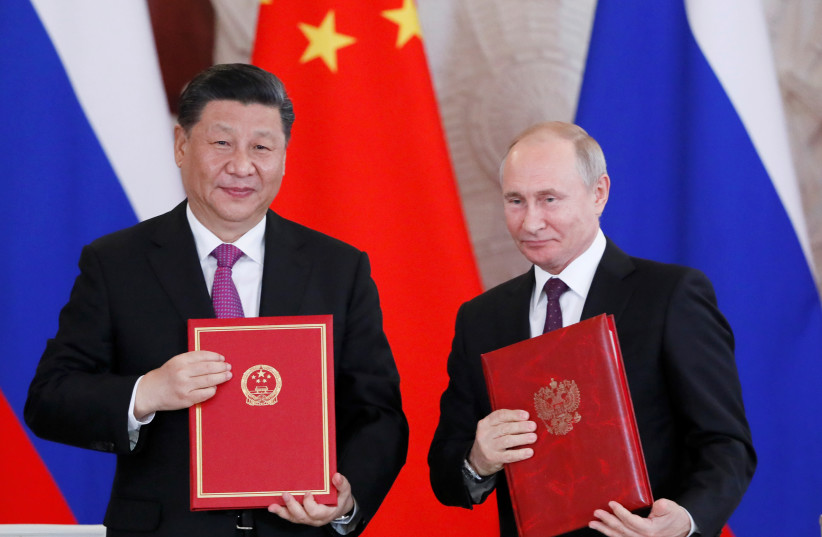International movements are accelerating, all against the backdrop of the post-COVID-19 reshaping of the world order. The crisis in Ukraine intensifies and the West’s warnings of a Russian invasion of Ukraine continue.
As China continues its strategic rise, it alternates between soft power (investment and trade) and the gradually emerging hard power, responding further to any Western criticism of Chinese policies, both in Taiwan and on the international stage, eschewing calm diplomatic language.
As well, Iranian President Ebrahim Raisi’s visit to Russia, which he called a turning point in Tehran-Moscow relations, is among these important moves.
The timing of the visit underscores the special importance of the significant talks with his Russian counterpart President Vladimir Putin, which coincides with the seventh round of negotiations to revive the 2015 nuclear agreement reached by the international powers (P5+1) with Iran. Many observers expect the Vienna part of the negotiations to be high on the agenda of the Russia-Iran summit.
One Russian analyst speculated that the Iranian president may tell the Kremlin the truth about Iran’s nuclear capabilities in order to find a solution to the Iranian negotiating boundary in coordination with the Kremlin, which has many common interests with Tehran at this stage.

Indeed, China, Russia and Iran seek joint economic and trade coordination, and give this aspect the highest priority, as all three parties believe that the US is not willing to engage in new wars. Consequently, issues of military cooperation and arms sales automatically become less important.
Transportation corridors and geopolitical projects, which are important nodes for the new Silk Road, have a higher priority than arms sales, at least for now. The US does not want to get entangled in new confrontations while it focuses on a day-to-day response to China’s strategic challenge and President Biden wants to prepare for the midterm congressional elections.
TODAY, BIDEN NEEDS effective negotiations and a truce with Putin. The results of the polls are not in the Biden’s best interest. Congressional elections are coming up next year, and Biden is aware that his declining popularity will inevitably affect the Democratic Party’s results in those elections.
He is now focused on passing legislation and reforms to combat the impact of the COVID-19 epidemic on the American electorate. Recently, the China-Iran Trade and Strategic Cooperation Agreement came into effect.
It is a 25-year agreement that is a comprehensive document on cooperation and includes an integrated road map for economic and political dimensions, Iranian Foreign Ministry Spokesman Saeed Khatibzadeh said. According to the Petroleum Economist, China will invest $280 b. in the oil and gas industry and $120 b. in Iran’s transportation industry.
These huge investments will be accompanied by lower Iranian oil prices for China (China will receive a 32% discount on its purchases of oil, gas and petrochemical products with a payment term of two years) and Beijing will have priority in implementing Iranian development projects.
Despite all the analysis about a Sino-Iranian alliance, the reality is that Beijing is not pursuing strategies based on close alliances or ideological prejudices. On the contrary, it relies on a common interest in balanced and parallel relations with all states and parties.
Beijing strives not to rely on particular actors in a region and not to enter the cycle of polarization and bias of a party to a conflict. However, the significant strategic benefits arising from the Iran-China partnership should not be overlooked. Tehran’s ability to challenge or at least undermine US influence is enhanced.
This indirectly gives Beijing strategic advantages. On the other hand, any opponent of US influence is an advantage to the Chinese competitor. However, a key question remains, whether China is able to strike a true balance in its strategic partnerships with all competing and conflicting parties in the Middle East.
As well, it is a fact that our region is undergoing a rapid strategic transformation that reflects broader changes on the world stage.
Now, it seems necessary to carefully examine these changes in order to recognize the implications of what is happening around us and to make decisions based on accurate data, in order to protect the interests of nations and avoid surprises resulting from major and rapid changes in the world order.
The writer is a UAE political analyst and former Federal National Council candidate.
